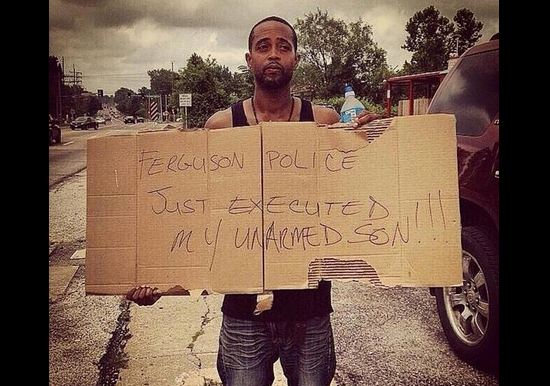Breaking
Prosecutor faces new criticism over Ferguson case
FERGUSON, Mo. — He criticized the media. He talked about witness testimony that didn’t match physical evidence. And he did it at night, as a city already on edge waited to learn if a grand jury would indict a white Ferguson police officer in the shooting death of an unarmed black 18-year-old.
St. Louis County Prosecutor Bob McCulloch – whose impartiality has been questioned since soon after Michael Brown was killed by Officer Darren Wilson on Aug. 9 – has come under renewed scrutiny since he appeared before television cameras to announce that the grand jury would not indict Wilson. A defensive McCulloch repeatedly cited what he said were inconsistencies and erroneous witness accounts. He never mentioned that Brown was unarmed.
Attorneys for Brown’s family and activists said Tuesday that everything from how evidence was presented to the grand jury to the way McCulloch delivered the news of its decision bolstered their belief that the outcome was predetermined by McCulloch, who has deep family roots and relationships with police.
“This grand jury decision, we feel, is a reflection of the sentiment of those that presented the evidence,” Anthony Gray, an attorney for Brown’s family, said at a news conference.
Gray questioned, for example, why prosecutors presented testimony of witnesses who clearly did not see the shootings, rather than make a case for some type of charges. He also said it was unclear how the evidence was presented.
Activists and Brown family attorneys had asked McCulloch – whose father, a police officer, was killed while responding to a call involving a black suspect – to appoint a special prosecutor.
He instead asked a grand jury to decide if there was enough evidence to bring charges, and assigned prosecutors in his office to present the evidence because he was “fully aware of unfounded but growing concern that the investigation might not be fair,” he said Monday.
McCulloch said the jury of nine whites and three blacks met on 25 separate days over three months, hearing more than 70 hours of testimony from about 60 witnesses, including three medical examiners and experts on blood, toxicology and firearms and other issues.
“The duty of the grand jury is to separate fact from fiction,” McCulloch said, adding that the panelists were “the only people that have heard and examined every witness and every piece of evidence.”
Convening a grand jury was a somewhat unusual move but not necessarily wrong, experts said.
“Ordinarily a prosecutor uses the grand jury as a rubber stamp, and people complain about that. This time, he went to the grand jury because he wanted them to take the political heat for a difficult decision, and he gave the grand jurors an overload of information,” said Laurie Levenson, a former federal prosecutor who teaches criminal law at Loyola University in Los Angeles. “So now people are criticizing that because the prosecutor’s not taking responsibility for the decision.”
David Sklansky, a criminal-law professor at Stanford University Law School, said the case in some ways underscores weaknesses in the grand jury system: “Grand juries don’t do a terrific job as a check on overzealous prosecutors, but they’re even worse as an independent check on a prosecutor who might be under-zealous,” he said, adding he was not saying that necessarily was the case with McCulloch’s office.
But some in Ferguson also were angry about how McCulloch handled the announcement of the grand jury decision – including his timing, his emphasis on witnesses whose memories did not match physical evidence and his claim that the media reports helped fan the flames of distrust back in August, when the shooting sparked widespread rioting and looting. The city erupted again Monday night after McCulloch spoke, with protesters smashing windows, looting and setting buildings and cars on fire.
“The way (McCulloch) just read off the whole speech was kind of like he was making a mockery of the whole situation,” said 20-year-old Darnesha Tabor if Hazelwood, who handed out bottled water on Tuesday in Ferguson.
She also said announcing the decision just before 8:30 p.m. Monday, when many protesters already had gathered in Ferguson, was a mistake. McCulloch spokesman Ed Magee said that gave schools time to get children home and businesses time to let employees leave.
Associated Press reporters Gene Johnson in Seattle and David Lieb in Ferguson contributed to this story.






















